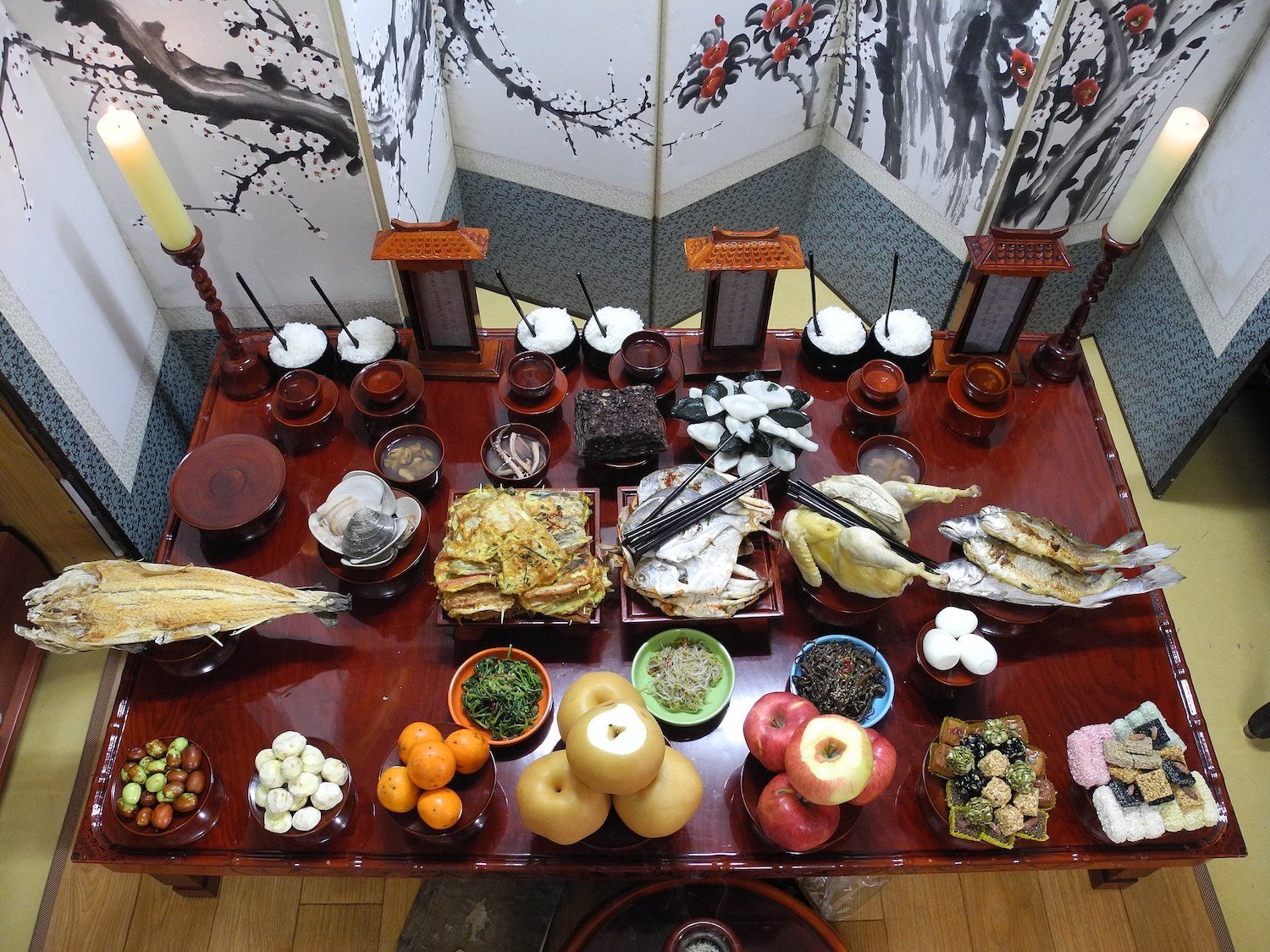A Korean Chuseok table
As the Korean Peninsula celebrates the Chuseok thanksgiving festival on September 10 this year, major food shortages sweep across the famine-stricken nation with a 700 percent rise in food prices, according to UN officials. This is leaving North Korean families unable to perform customary duties by bringing food to gravesites to thank their ancestors for an “abundant harvest” for a third consecutive year. Among the two main imported food products, namely sugar and flour, their prices between 2017 and late June 2022 have risen 726.76 percent and 271.84 percent per kilogram, respectively. Faced with the significant price increase in raw materials, food vendors must raise their prices or shrink their portions, but many fear that doing so would drive away customers and ultimately threaten their livelihoods.
HOW NORTH KOREANS CELEBRATE CHUSEOK
Unlike South Koreans who enjoy the holiday for at least three days, Chuseok is a one-day celebration in North Korea as socialist anniversaries like the birthday of its founding leader, Kim Il-sung, are deemed more important than traditional holidays. However, this does not mean that North Koreans lack sincerity in their preparation for Chuseok.
Traditionally, Chuseok food preparations are taken very seriously and would even begin a month in advance. North Koreans make songpyeon rice cakes two or three times bigger than South Korean ones and fill each half-moon shaped rice cake with boiled red beans or kidney beans, grinded walnuts or stir-fried vegetables. As the weather is colder in the North, a large amount of songpyeon is made during Chuseok, which can be stored and consumed for a long period of time. In addition to preparing their ancestors’ favorite dishes, North Koreans also cook Korean beef radish soup and grilled beef, though beef is extremely rare in the North and is often replaced with pork that they receive as rations from spring to fall which they preserve in salt.
THE NORTH KOREAN WAY TO BEG FOR FOOD
It has never been easy for North Koreans to acquire enough rice to make songpyeon even before the Covid-19 pandemic and recent economic downturns due to its low rice production. This year’s Chuseok is further met with “worse-than-expected food shortages” to the extent North Korea’s leadership ordered officials stationed abroad, including diplomats, trade delegates and smugglers of specialized items, to secure rice, corn, beans and other staple food supplies as much as possible. The authorities issued an explanation to the order: “Agricultural production took a hit following a ban on movement with the emergence of COVID-19 cases during the first half of the year, a time when the nation was supposed to fully mobilize labor into agricultural areas,” and added that the value of grain secured can be offset against their scheduled cash contributions to the Workers’ Party.
According to a source from DailyNK, the authorities called on overseas officials to secure food for the state. Additionally, a request for food by North Korean officials visiting the Indian Chamber of International Business to discuss humanitarian food aid was recently published on Yonhapnews, which DailyNK’s source warned that it could lead to punishments of the officials.
STEALING FOOD FROM ITS PEOPLE
Locally, “corn inspection squads” have reportedly been tasked to patrol areas near rural collective farms to catch “grain thieves” until the harvest season this month. However, sources from Radio Free Asia suggest that this is in fact just an excuse for the government to search and confiscate food from innocent citizens carrying grains. During a crackdown in North Hwanghae province, south of Pyongyang, “Merchants who were targeted by the police lost whole corn sacks” and residents were reportedly enraged by the authorities for “punishing people who trade grain to make ends meet.”
North Korea is in dire need of aid and yet continues to play war games while forcing its people to suffer under their cruel and harsh control.


